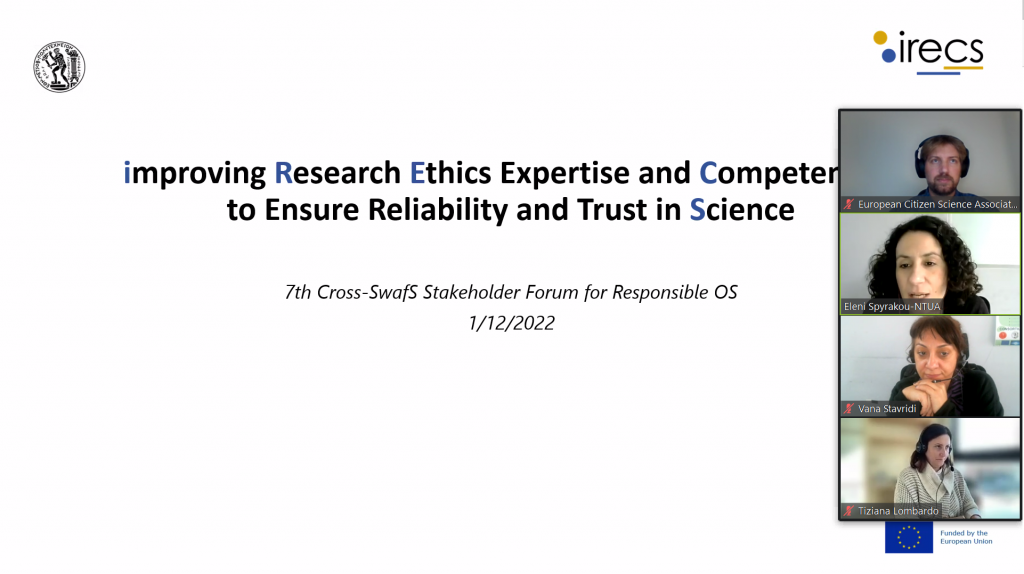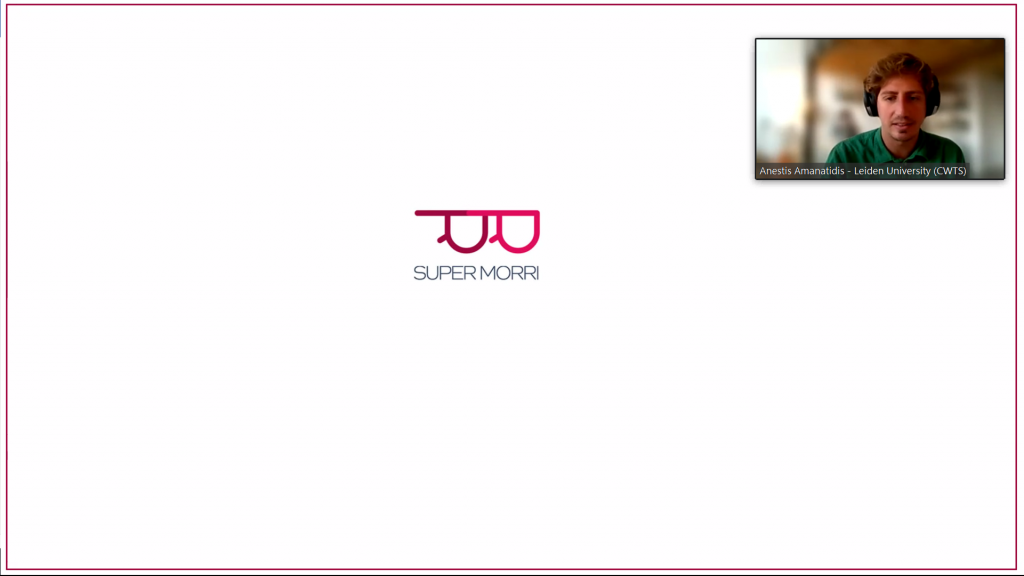The Cross-SwafS Forum meetings continue! This time we had the opportunity to welcome and meet a new EU project, iRECS: improving Research Ethics Expertise and Competencies to Ensure Reliability and Trust in Science, which was represented by Dr. Eleni Spyrakou of NTUA.

As always, the fisrt part of the meeting was dedicated to projects’ updates and the second part was chaired by SUPER MoRRI and the topic for discussion was on “Unavoidably implicated: researchers’ role in projects promoting better science’ (relationship between idea and action in RRI)“.

Anestis Amanatidis of SUPER MoRRI led the presentation for the 7th session. The presentation addressed the context and factors surrounding the idea of ‘good science’ in open and citizen science. Anestis proposed that structures of knowledge production are based on the logic of top-down control, restricting inclusiveness and allowing for injustice. The structures are hesitant to change, and change only gradually. This top-down structure influences what research is valued, and how it is performed and funded. Often research deemed to have a productive value is prioritized, and there is a need to shift to inclusive, just and sustainable research. He also highlighted that project activities are often not sensitive to local dynamics, which can lead to obstacles within a project. The embedded logics of projects, timings, deliverables and objectives influence our routines, frameworks, regulations and ideas of ‘good science’, as well as how research is conducted and where value is assigned.
A discussion followed on the question of ‘What role do we play in the elevation of nice things / disempowerment of people who hold considerable power in keeping infrastructures in place?’Consortium members posited that the selection of stakeholders for engagement activities in EU-funded projects often favor those who are already powerful to the detriment of stakeholders who are typically disempowered. This risks elevating stakeholders who already have power in order to maximize the reach and impact of a project. Problems such as this arise from the pursuit of project goals and ends, with the relatively short life-span of projects playing a role in these structures. It was agreed that there is a need to address the inherent bias in stakeholder selection.
Thank you SUPER MoRRI for the very interesting discussion!
